Archive: 2025 | 2024 | 2023 | 2022 | 2021 | 2020 | 2019 | 2018 | 2017
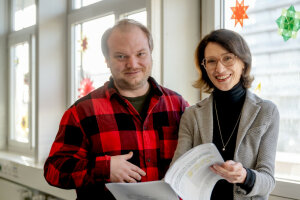
Researchers have identified a mechanism that promotes the breakdown of harmful protein deposits. If it malfunctions, it can lead to Parkinson’s disease.
NEMO, a protein that is primarily associated with signaling processes in the immune system, prevents the deposition of protein aggregates that occur in Parkinson’s disease.
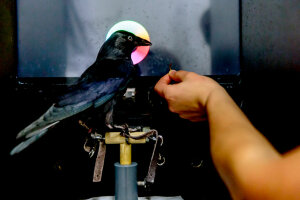
Jackdaws improve their memory performance by classifying continuous stimuli into categories. The so-called attractor dynamics provide new insights into the functioning of the brain.
Working memory is a crucial element of higher cognition in both primates – which include humans – and corvids. In their studies researchers at Ruhr University Bochum have now discovered remarkable parallels in the memory optimization of primates and corvids.

It’s quite obvious that they are involved. The latest findings show one possible way.
Neurodegenerative diseases are characterized by the deposition of clumped proteins in the brain and progressive neuronal cell death. Although the causal link between protein aggregates and neurodegeneration is clear, it is still unclear in what way misfolded proteins trigger cell death.
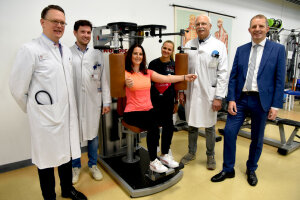
Eine neue Immuntherapie hilft gegen Myasthenie und könnte auch bei Multipler Sklerose und Rheuma eine Perspektive bieten.
Ein internationales Forschungsteam aus Deutschland und den USA hat einen Erfolg im Kampf gegen die bisher unheilbare Autoimmunerkrankung Myasthenie erzielt, durch die Betroffene im schlimmsten Fall kaum noch laufen, schlucken oder kauen können.
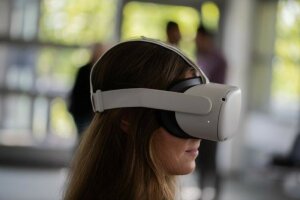
The discovery of the phantom touch illusion provides insights into human perception and opens up new perspectives for interaction with virtual reality technology.
Virtual reality (VR) is not only a technology for games and entertainment, but also has potential in science and medicine. Researchers at Ruhr University Bochum, Germany, have now gained new insights into human perception with the help of VR. They used virtual reality scenarios in which subjects touched their own bodies with a virtual object.

Researchers at Ruhr University Bochum have published the first systematic review of Autonomous Sensory Meridian Response (ASMR).
Millions of people watch content creators on YouTube and social media platforms such as TikTok as they whisper soothing words, perform simulated role plays such as a visit to the hairdresser, or interact with certain objects such as the keyboard of a computer in a specific rhythm.
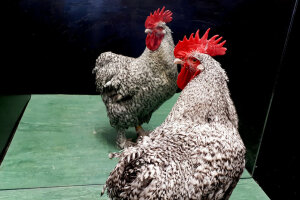
A study by researchers at the Universities of Bonn and Bochum suggests that roosters might recognize themselves in the mirror.
Scrape, cluck, lay eggs – that's it? Anyone involved in chicken farming knows that the animals are capable of much more. Researchers at the Universities of Bonn and Bochum, together with the MSH Medical School Hamburg, have found evidence that roosters could recognize themselves in a mirror. Whether this is successful, however, depends on the experimental conditions.
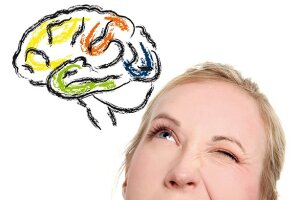
Ein Nachmittag im Zeichen der Bochumer Neurowissenschaften mit Vorträgen, Informationen und Mitmachaktionen.
Wie verändert Schlagzeugspielen das Gehirn? Wie wirken Isolation und Einsamkeit auf Nervenzellen? Was hat die Darm-Hirn Achse mit chronischen Bauchschmerzen zu tun? Und welche neuen Erkenntnisse bietet die Forschung in Bezug auf die Multiple Sklerose?
Einblicke in eine faszinierende Welt - darum geht es einmal pro Jahr an der Ruhr-Universität Bochum, wenn die Neurowissenschaftler*innen ins Veranstaltungszentrum einladen.
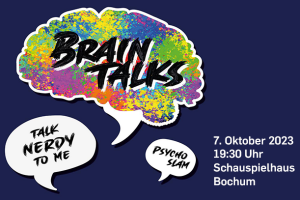
Kreative Köpfe aus Psychologie und Neurowissenschaft unterhalten das Publikum im Schauspielhaus Bochum mit ihrer Forschung.
Vergessen, Erinnern, Verlernen, neu Lernen: Es braucht die ganze Vielfalt der Psychologie und der Neurowissenschaft, um den Rätseln dieser Prozesse auf die Spur zu kommen. Einen Abend lang soll es genau um diese Prozesse gehen, bei den Brain Talks im Schauspielhaus Bochum am 7. Oktober 2023 um 19.30 Uhr.
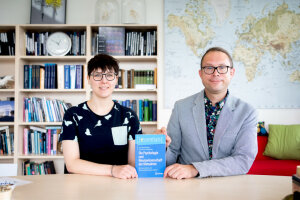
Mit den schnell steigenden Temperaturen kommt das Gehirn nicht mit. Forschende fordern Vorbereitungen für das Gesundheitssystem.
Über Jahrtausende hinweg hat sich unser Gehirn an unseren Lebensraum angepasst. Verändert er sich durch schnell steigende Temperaturen und den damit verbundenen Verlust von Ökosystemen, kommt das Gehirn von Menschen und Tieren nicht mehr mit. Was das bedeutet, beschreiben Dorothea Metzen und Prof. Dr. Sebastian Ocklenburg aus der Biopsychologie der Ruhr-Universität Bochum und der Medical School Hamburg in ihrem Buch „Die Psychologie und Neurowissenschaft der Klimakrise“. Sie integrieren dabei verschiedene Forschungszweige der Psychologie und Neurowissenschaft. Das Lehrbuch ist im Springer-Verlag erschienen.
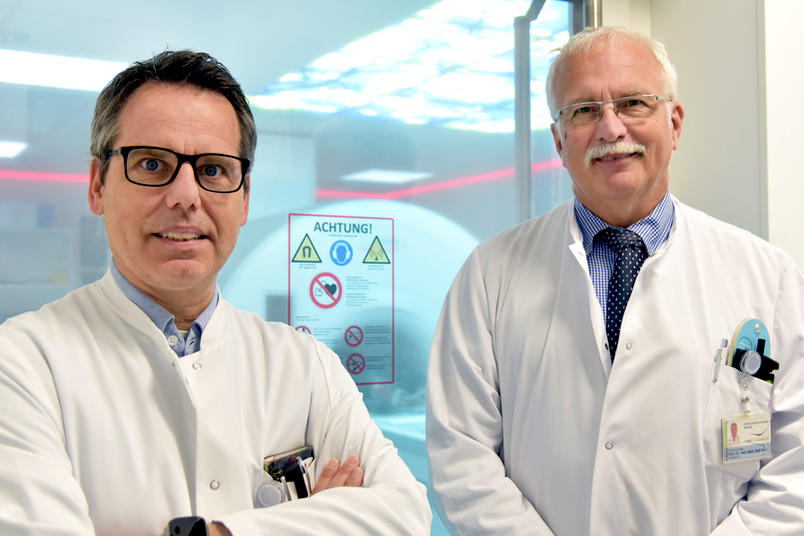
Ein großer Datenpool soll Präzisionsmedizin und personalisierte Therapie bei Multipler Sklerose ermöglichen.
Künstliche Intelligenz ist in der Medizin ein Hoffnungsträger geworden. Helfen soll sie auch bei der Behandlung der Multiplen Sklerose (MS). Dazu unterstützt die Europäische Kommission im Rahmen der Innovative Health Initiative das Projekt CLAIMS – kurz für Clinical impact through AI-assisted MS care – für vier Jahre mit fast zehn Millionen Euro. Beteiligt sind 15 Partner aus neun Ländern. Zu ihnen gehört die Ruhr-Universität Bochum, vertreten durch das Institut für Neuroradiologie im St. Josef-Hospital (Chefarzt Prof. Dr. Carsten Lukas).
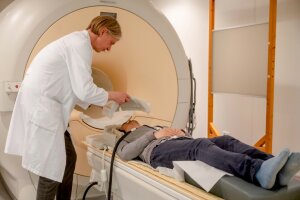
A research team from Bochum and Newcastle has discovered new neuronal network mechanisms of flexibility in learning behavior.
Get up. Go to the kitchen. Prepare some cereal – but a look into the fridge shows: the milk bottle is empty. What now? Skip breakfast? Ask the neighbour for milk? Eat jam sandwiches? Every day, people are confronted with situations that were actually planned quite differently. Flexibility is what helps. The origin of this skill in the brain is called cognitive flexibility. A neuroscientific research team at the Berufsgenossenschaftliches Universitätsklinikum Bergmannsheil, University Hospital of Ruhr University Bochum, Germany, and the Biosciences Institute at Newcastle University has now succeeded in getting a little closer to the evolutionary origin of cognitive flexibility. The researchers published their findings in the journal Nature Communications, online since 9. June 2023.
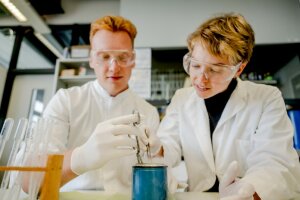
Progesterone was shown in a study to have a protective effect on intestine nerve cells. These findings raise hopes that the hormone could be used in the fight against Parkinson’s disease.
The nerve cells of the gastrointestinal tract communicate with those of the brain and spinal cord. This suggests that the nervous system of the digestive tract could influence processes in the brain that lead to Parkinson’s. Paula Neufeld and Lennart Stegemann, medical doctoral students at the Department of Cytology at the Faculty of Medicine at Ruhr University Bochum, Germany, were the first to detect progesterone receptors in the nerve cells of the gastrointestinal tract and showed that progesterone protects the cells. Their findings open up perspectives for the development of novel neuroprotective therapeutic approaches to counteract diseases such as Parkinson’s and Alzheimer’s. The study was published in the journal Cells on April 21, 2023.
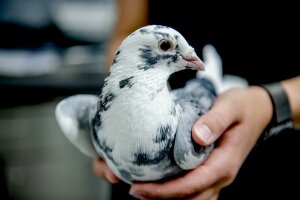
Birds show remarkably similar sleep patterns to humans and may experience flight in their dreams.
Dreams have been considered a hallmark of human sleep for a long time. Latest findings, however, suggest that when pigeons sleep, they might experience visions of flight. Researchers at Ruhr University Bochum, Germany, and at the Max Planck Institute for Biological Intelligence studied brain activation patterns in sleeping pigeons, using functional magnetic resonance imaging. The study revealed that similar to mammals, most of the brain is highly active during REM sleep. However, this wake-like state might come at a cost of reduced waste removal from the brain. The researchers published their findings in the journal Nature Communications on June, 5, 2023.
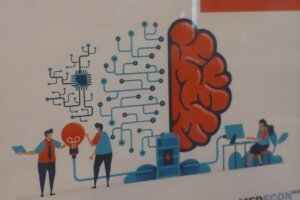
Bei der Veranstaltung BrainBusiness 2023 kamen am 11. Mai rund 70 Gäste in die Aesculap Akademie auf den Gesundheitscampus Bochum zusammen, um Vorträge zu hören und zu diskutieren, wie sich Neurowissenschaften und Gesundheitswirtschaft ergänzen und voneinander profitieren können.
Zwei Themenschwerpunkte standen auf dem Programm: „Lernvorgänge und Therapieprozesse: Von den Grundlagen in die Anwendung“ sowie „Künstliche Intelligenz und Smart Health für Neurologie und Neurowissenschaft“. Vorträge dazu kamen von PD Dr. Adriane Icenhour, Prof. Dr. Elena Enax-Krumova, Thomas Saur, Maike Weber, Prof. Dr. Katrin Marcus-Alic, Prof. Jörg Wellmer und Dr. Timothy Goering – allesamt begeisterte Innovatorinnen und Innovatoren, die ihre Expertise gern mit den Gästen und Mitreferent*innen teilten.
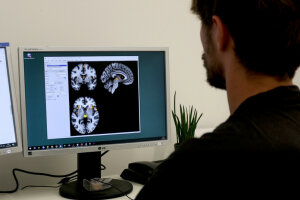
Pain-processing regions are particularly affected by changes in brain volume. The good news is that these changes may be reversible.
One of the core symptoms experienced by patients with fibromyalgia is chronic pain. A team from the LWL Clinic for Psychosomatic Medicine and Psychotherapy at Ruhr University Bochum, Germany, has investigated the brain changes that are related to the disorder. Using magnetic resonance data, the researchers proved that the areas of the brain involved in the processing and emotional evaluation of pain are altered in patients. This applies to the volume of both the grey matter, which mainly houses nerve cells, and the white matter, which mostly consists of fibre connections between the nerve cells. The researchers published their findings in the journal Arthritis Research and Therapy on 19 May 2023.
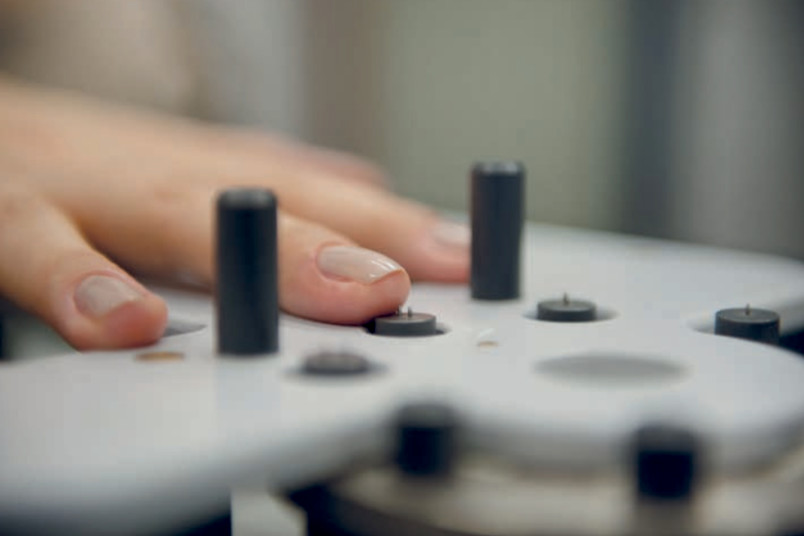
Do we always perceive the world in the same way? A hypnosis experiment proves that we certainly don’t.
If we sincerely believe that our index finger is five times bigger than it really is, our sense of touch improves. Researchers at Ruhr University Bochum demonstrated that this is the case in an experiment in which the participants were put under professional hypnosis. When the participants signalled that they understood the opposite hypnotic suggestion that their index finger was five times smaller than it actually was, their sense of touch deteriorated accordingly. The study shows that our tactile perception is affected and can be altered by our mental processes. The scientific community has been divided on this issue. Headed by PD Dr. Hubert Dinse, Professor Albert Newen and Professor Martin Tegenthoff, the researchers published their findings in the journal Scientific Reports on 21 April 2023.
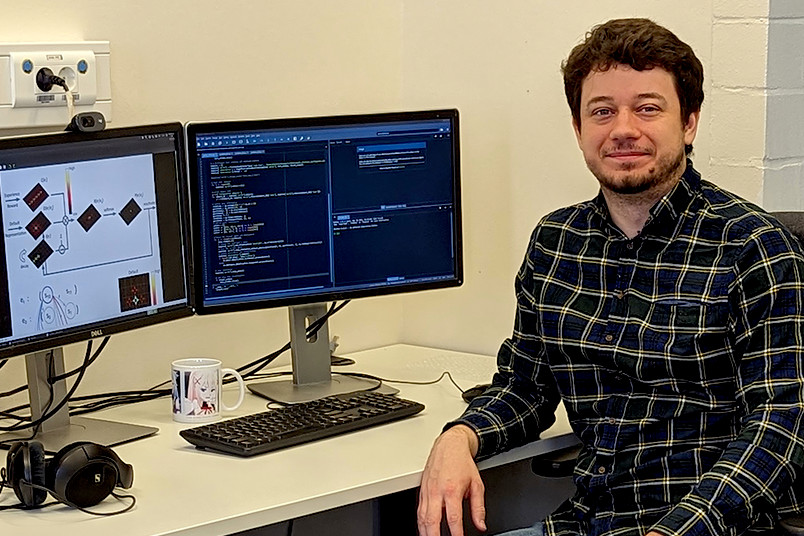
How does the brain learn spatial information? Neural computation researchers are using artificial intelligence to explore this question.
Researchers at the Neural Computation Institute of Ruhr University Bochum, Germany, have constructed a computer model that learns spatial information in a pattern similar to that of rodents. In the process, individual sequences of nerve cell activities in the hippocampus are played back repeatedly according to specific priorities. If an artificial intelligence follows the same pattern, it learns spatial information more quickly than if the sequences were repeated at random. Nicolas Diekmann and Professor Sen Cheng published their findings in the journal eLife from 14 March 2023.
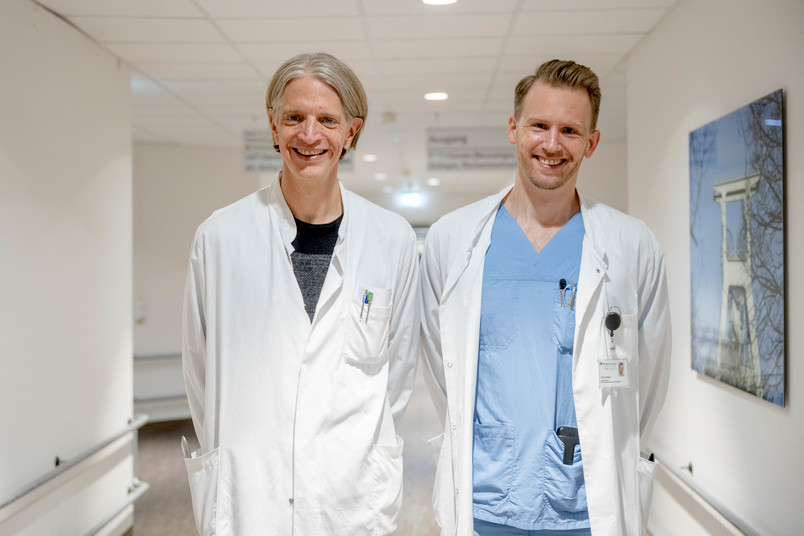
Conditioning that once worked with Pavlov’s dog does also work with an artificially induced change in nerve cell activity.
Researchers at Ruhr University Bochum, Germany, have successfully implemented a special form of classical conditioning. They showed on a group of 75 people that effects of transcranial magnetic stimulation (TMS) can be triggered solely by listening to a tone. Professor Burkhard Pleger from the Neurology Department at Berufsgenossenschaftliches Universitätsklinikum Bergmannsheil describes the results together with the medical doctoral students Stefan Ewers and Timo Dreier and other colleagues in the journal “Scientific Reports”, published online on 16 April 2023.

RUB-Forscher berichtet in WDR 5 bei „Quarks - Wissenschaft und mehr”
Warum versagt unser Gedächtnis unter Stress und wie kann man sich gegen Blackouts wappnen? Das und mehr war Thema beim Gespräch von Moderatorin Steffi Klaus und Stressforscher Prof. Dr. Oliver T. Wolf, Abteilung für Kognitionspsychologie der RUB, in der Wissenschaftssendung „Quarks – Wissenschaft und mehr“, am 28. März 2023 bei WDR5. Rund eine halbe Stunde tauschten sich die beiden über den aktuellen Forschungsstand zum Thema Stress aus, gaben Tipps zur Vorbeugung von Abrufblockaden und erörterten hilfreiche Lernstrategien zur Verbesserung des Gedächtnisses.
Die Aufzeichnung der Sendung ist in der WDR-Audio-Mediathek abrufbar.
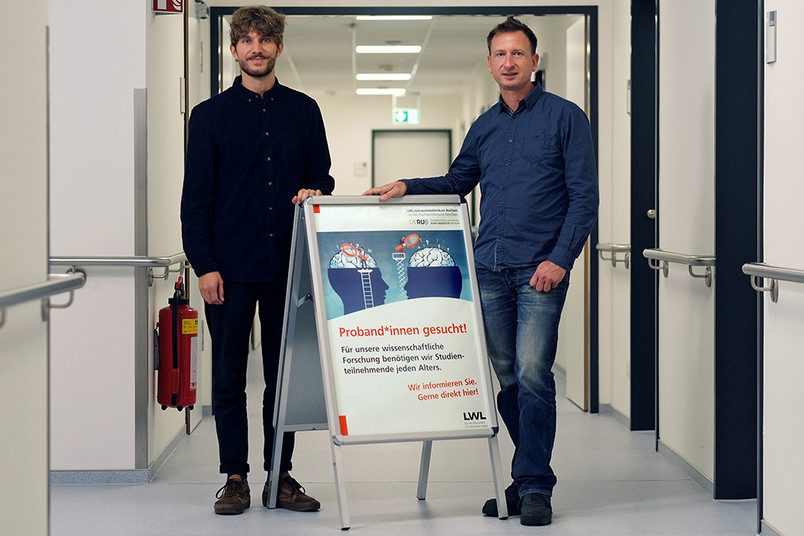
Feeling like we have a degree of control makes us tolerate pain better. In the case of fibromyalgia, however, this simply doesn’t work. A study provides clues as to why.
Fibromyalgia is a mysterious chronic pain disorder that is difficult to treat. Its causes are also still largely in the dark. A study conducted by the team at the Clinic for Psychosomatic Medicine and Psychotherapy at Ruhr University Bochum, Germany, provides evidence that certain brain areas involved in processing pain don’t function normally in fibromyalgia patients. In healthy people, they ensure that pain that we can control is easier to bear. The study found that these brain areas showed altered activity in patients with fibromyalgia. The research team headed by Professor Martin Diers published their findings in the journal NeuroImage: Clinical of 21 February 2023.
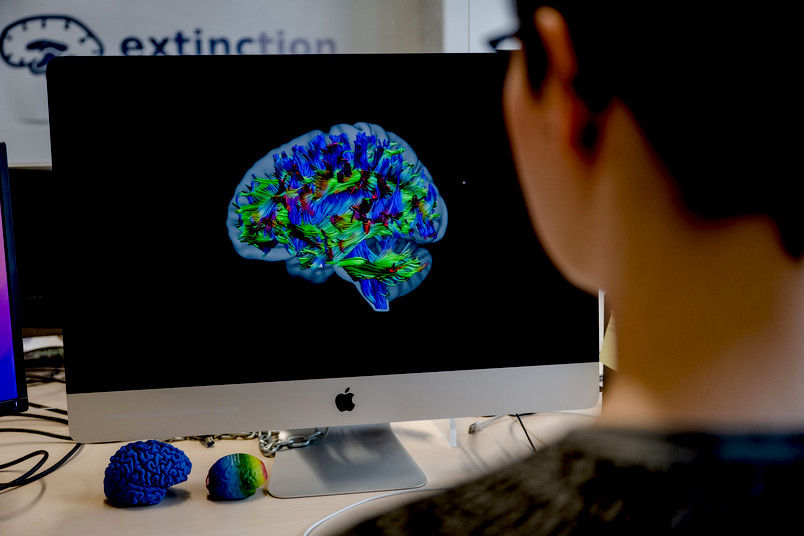
Genes influence different structures and the function of the brain. These in turn explain differences in behavior. Analysing all three aspects at once is a challenge – but has now been achieved.
Intelligence is partly heritable. There are studies that show that certain genetic variations are linked to better performance in intelligence tests. Other studies show that a variety of brain characteristics, such as network efficiency, are related to intelligence. For the first time, researchers have now studied all three parameters – genes, different brain characteristics and behavior – simultaneously. Using gene analyses, magnetic resonance imaging and intelligence tests, the team demonstrated which brain characteristics form the link between genes and behavior.
The results are described by a team around Dorothea Metzen from the Department of Biopsychology at Ruhr University Bochum, Germany, and Dr. Erhan Genç, formerly at Ruhr University, now at the Leibniz Research Centre for Working Environment and Human Factors in Dortmund (IfADo), in the journal "Human Brain Mapping", published online on 4 April 2023.
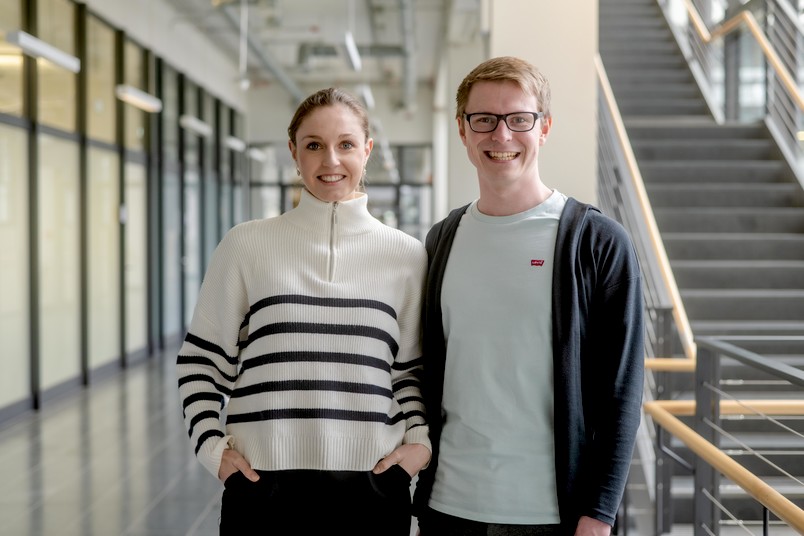
A Bochum research team has developed a German version of the "Stress Overload Scale". The translation improves the international comparability of results in stress research.
Stress is a central topic in psychology and health sciences because in its chronic form it affects physical and mental health. An important and new type of questionnaire to assess subjectively perceived stress is the so-called Stress Overload Scale (SOS). Researchers from Bochum and London, among them Professor Maike Luhmann and Professor Oliver T. Wolf, both from Ruhr University Bochum, have now developed a German translation of the SOS. The team presents its findings in the journal Psychological Test Adaptation and Development, published online and open access on 24 March 2023.

Auf dem Technologiecampus Mark 51°7 geht es gut voran. Am Forschungsbau THINK ist nun Richtfest gefeiert worden.
Ein bedeutender Meilenstein ist am 17. März 2023 auf dem ehemaligen Opel-Gelände an der Wittener Straße in Bochum erreicht worden: Der Forschungsbau THINK der Ruhr-Universität Bochum feierte Richtfest. Als Bauherr hatte der Bau- und Liegenschaftsbetrieb des Landes Nordrhein-Westfalen (BLB NRW) zu den Feierlichkeiten eingeladen. Für die Landesregierung kam Gonca Türkeli-Dehnert, Staatssekretärin des Ministeriums für Kultur und Wissenschaft, nach Bochum.
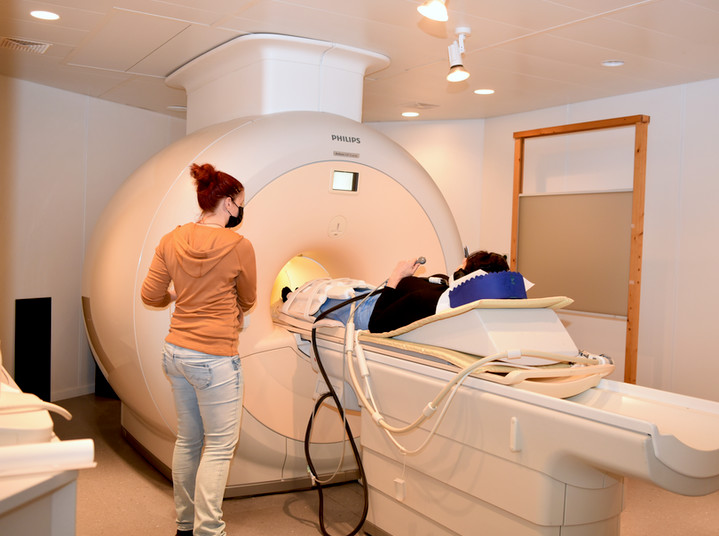
Betroffene Patientinnen und Patienten mit Post-Covid zeigen mikrostrukturelle Muskelveränderungen. Ein spezielles Training könnte dagegen helfen.
Muskelschmerzen und frühzeitige Muskelermüdung sind bei Menschen mit einer Post-Covid-Diagnose weit verbreitet. Ein neurowissenschaftliches Forschungsteam am BG Universitätsklinikum Bergmannsheil, Klinikum der Ruhr-Universität Bochum, hat untersucht, ob sich bei Menschen mit diesem Symptombild krankhafte Muskelveränderungen nachweisen lassen. Das Forschungsteam der Neurologischen Klinik (Direktor: Prof. Dr. Martin Tegenthoff) unter der Leitung von Prof. Dr. Elena Enax-Krumova und Privatdozentin Dr. Lara Schlaffke hat die Beinmuskulatur von betroffenen Patientinnen und Patienten analysiert. Dazu wurden etablierte bildgebende Verfahren – die quantitative Magnetresonanztomografie der Skelettmuskultur – genutzt. Zum Vergleich wurde eine Kontrollgruppe von nicht-erkrankten Probandinnen und Probanden einbezogen. In den Muskelpartien von Patientinnen und Patienten mit einem Post-Covid-Syndrom zeigten sich gegenüber der Kontrollgruppe mikrostrukturelle Veränderungen. Allerdings fanden sich keine Anzeichen von Entzündungsprozessen oder krankhafter Muskelumwandlung (Dystrophie). Die Ergebnisse der Studie wurden am 24. Januar 2023 im European Journal of Neurology veröffentlicht.
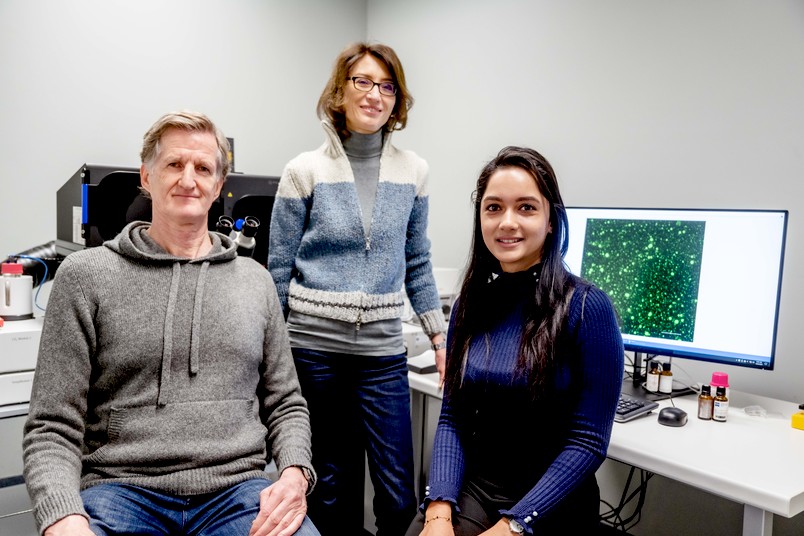
Certain biomolecules temporarily assemble in cells to form active complexes. This can be crucial for their functionality.
A cascade of various events is required for the transmission of signals within cells. These include several modifications of proteins to switch their function on or off. In order to ensure rapid signal transmission, signalling proteins transiently accumulate at specific sites in the cell, where they can form biomolecular condensates. A team led by Professor Konstanze Winklhofer, head of the Department of Molecular Cell Biology at Ruhr University in Bochum, observed that the signalling protein NEMO also forms condensates and identified the underlying mechanism. These findings are crucial for understanding signalling processes in the immune and nervous systems. The researchers report on this finding in the issue of the journal Life Science Alliance from 31 January 2023.
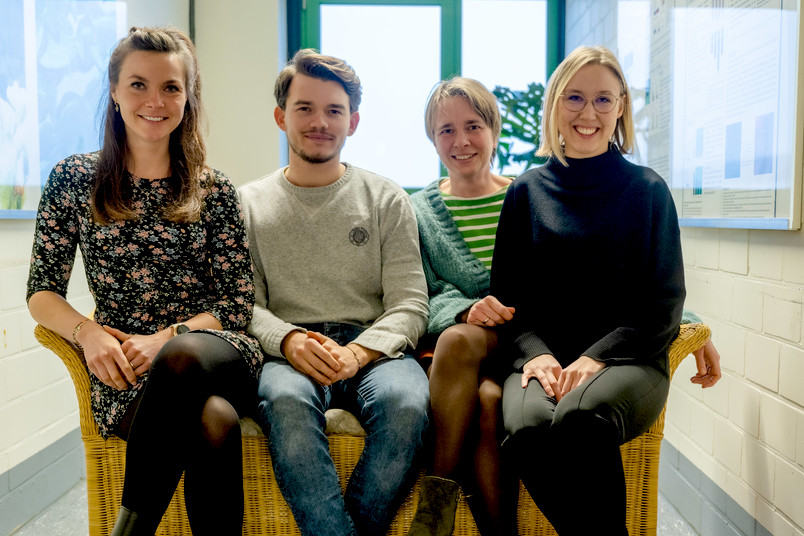
Light can trigger a signalling cascade in the cerebellum. This also illuminates processes that play an important role in cerebellar diseases.
Processes in the cerebellum are involved in various diseases that affect motor learning. These can be better investigated using a new tool developed by a Bochum research group: a light-activatable protein that is coupled with part of an excitatory receptor. This optogenetic tool allows light to activate a signalling pathway in neurons of the cerebellum and observe its effects. For example, the group led by Dr. Ida Siveke from Professor Stefan Herlitze's research group at the Ruhr University Bochum, Germany, was able to show that the signalling pathway is involved in cerebellum-controlled motor learning. The researchers report in the journal iSience of 16 December 2022.
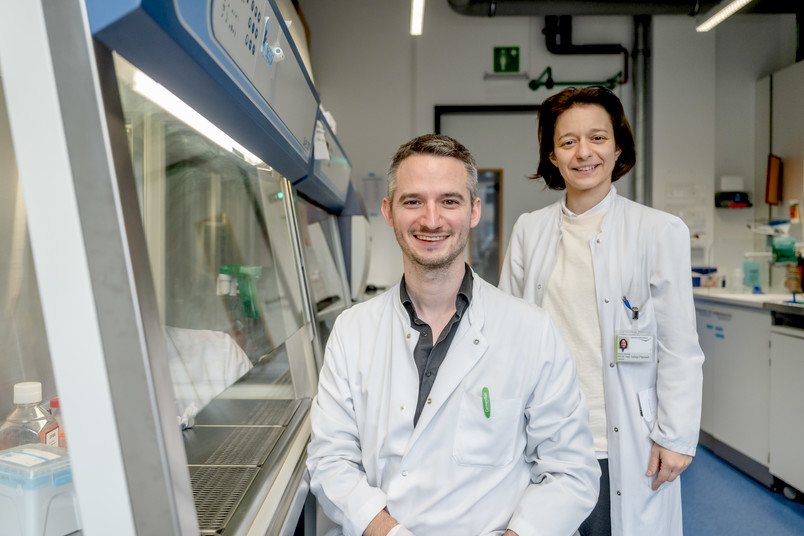
Some autoimmune diseases attack the nerves in the arms and legs. Bochum-based researchers are pursuing a new approach to counteracting this damage.
Researchers at St. Josef Hospital Bochum have shown in lab experiments that propionate, i.e. the salt of a short-chain fatty acid, can protect nerves and help them regenerate. The findings could be useful for treating autoimmune diseases that cause damage to nerve cells, such as chronic inflammatory demyelinating polyneuropathy (CIDP). Propionate is naturally produced in the intestine when dietary fibre is broken down. In previous studies, a team from the same department at St. Josef Hospital Bochum, clinic of Ruhr University Bochum, Germany, had already demonstrated that people with multiple sclerosis (MS) are deficient in propionate and can benefit from taking additional propionate. Accordingly, the substance could also be useful for patients with CIDP.
The group headed by Dr. Thomas Grüter and Dr. Kalliopi Pitarokoili from the neurological clinic at St. Josef Hospital (Director: Professor Ralf Gold) published the results in the journal “Proceedings of the National Academy of Sciences of the United States of America” on 20. January 2023.